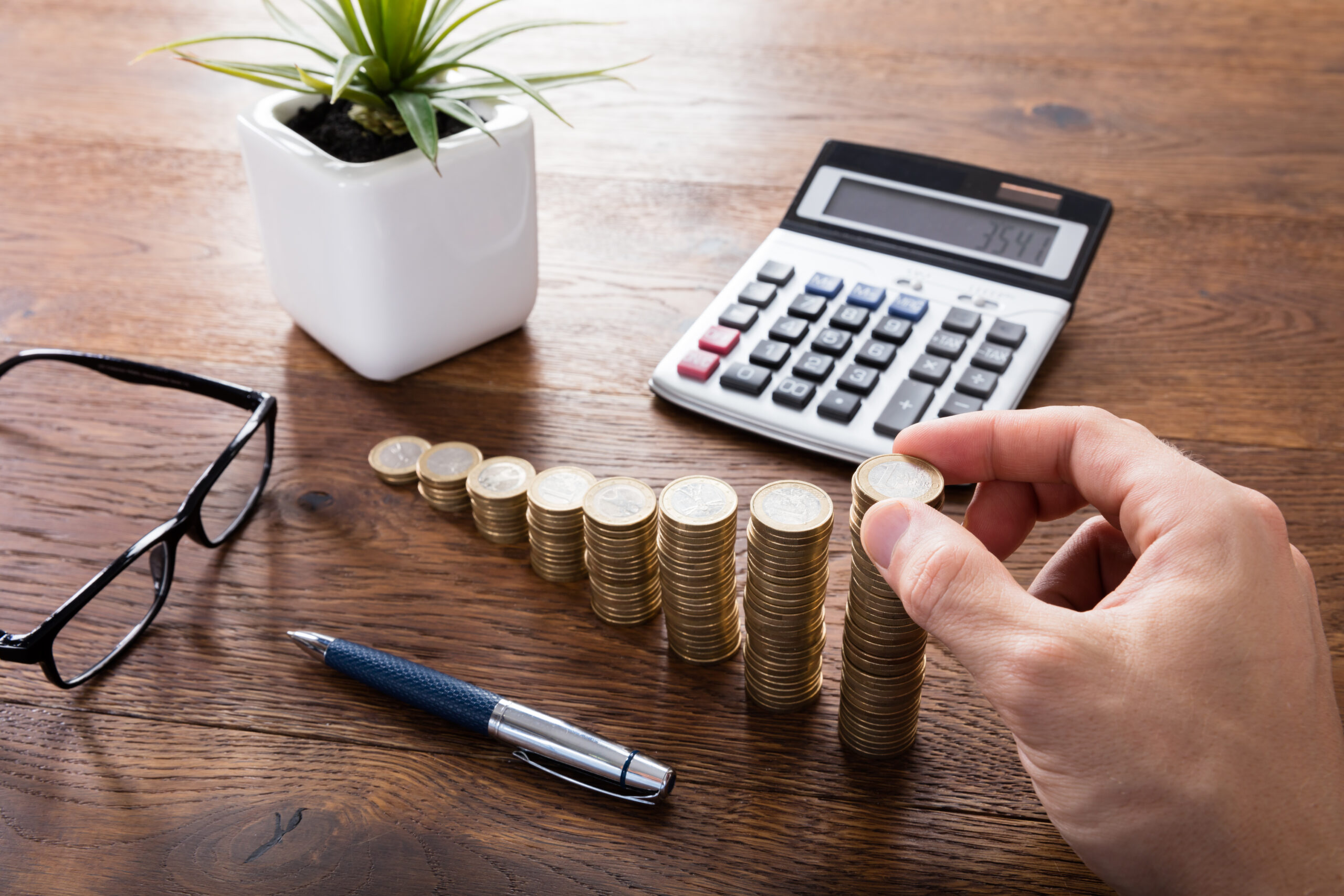Register As A Sole Trader: A Guide

So, you’ve quit your job and decided to move into a different avenue: working for yourself.
Registering as a sole trader is typically the preferred option for people looking to set up their own businesses. But there are lots of responsibilities that come with the freedom of working for yourself, including managing your monthly finances, filing your own self-assessment tax, and submitting your tax returns on time.
This guide will discuss some of the information you need to know before registering as a sole trader. While being self-employed does bring its challenges, having the right early insight will make your transition from employee to sole trader a much simpler one.
Can I Have a Trading Name as a Sole Trader?
One of the first things to consider before becoming a sole trader is your business or trading name.
When you register as a sole trader online, you will need to give your company a name. This may feel a little strange if you just plan to work for yourself. In some cases, such as for business advertising, having a catchy, memorable business name can be helpful.
Many sole traders choose to name their businesses with their own name, followed by the service they offer, such as “John Smith Plumbing”. You don’t have to have a proper business name, though. You can simply call your business by your name. This works fine, as when you’re a sole trader, yourself and your business are seen as the same thing, rather than separate entities.

Do I Need to Register as a Sole Trader?
HMRC recommends that you register as a sole trader as soon as possible after you start trading. Even if you don’t think you’ll earn enough in your first year to be required to pay taxes, you must still legally document your earnings in your self-assessment tax return at the end of every trading year.
If you don’t register at least by October in your business’s second tax year, you may receive a fine or a penalty from HMRC.
Luckily, registering as a sole trader is relatively straightforward – far simpler than registering limited companies. You simply need to enter your details, including your national insurance number, into the GOV website to register for self-assessment.
HMRC will send you your unique taxpayer reference (UTR number), which you should note down and keep somewhere safe. You’ll then be able to log into your account using your provided details when you want to file your taxes or access payment information.

Does it Cost to Register as a Sole Trader?
No – registering as a sole trader is completely free.
The only potential cost you will incur from being a registered sole trader is a penalty for failing to pay your taxes on time. Of course, if you’re organised and manage your accounts wisely, this is a cost you will never need to worry about.
Sole Trader Tax – What You Need to Know
If you’re becoming a sole trader after years of working as an employee for a larger business, you may feel daunted about paying income tax as a self-employed individual.
However, income tax isn’t so scary. While you were in employment, your taxes would have come straight out of your earnings before you received them. The only difference with being a sole trader is that you pay your tax bill in one chunk at the end of the tax year, rather than having your taxes automatically deducted from your monthly wages.
You won’t have to pay any tax at all until you’re earning £12,500 per year. However, you will still need to complete your annual self-assessment tax return, whether you’ve passed this threshold or not.
It’s worth keeping your income tax in mind after you register as a sole trader. It can be tempting to put off anything related to your taxes, only to remember that you need to pay a few thousand pounds to HMRC with months to spare.
A wise strategy is to set up a separate savings pot for your taxes and add 20% of your monthly earnings to this pot on “payday”. This means you’ll know from the start that a portion of your money is off-limits, and you won’t unintentionally spend more than you earn.
The important dates for sole traders are:
- 6 April to 5 April: In the UK, the tax year runs from 6 April to 5 April the following year. So, for 2021-2022, the tax year would run from 6th April 2021 to 5th April 2022.
- 5 October: If you’re self-employed and earn more than £1,000, you will need to become a sole trader no later than 5 October in your second trading year.
- 31 January: This is the online self-assessment returns deadline. It’s also the deadline to pay your tax bill, regardless of whether you submit a paper return or online return.
- 31 October: This is the paper self-assessment returns (by post) deadline.
31 January & 31 July: When you become a sole trader, you will need to make payments on account towards the following year’s tax bill. These are essentially advanced payments, and the exact amount you’ll pay depends on your current tax bill, which HMRC uses as a ballpark figure.
The Benefits and Risks of Being Self-Employed
Just like there are pros and cons of being an employee, there are pros and cons of being a sole trader.
Some of the most significant benefits of being self-employed are:
You’re Your Own Boss
As a self-employed professional, you have complete freedom over your working hours or days, work location, and breaks. You won’t need to seek permission from a manager to work from home or take a holiday. Your entire working day can be structured exactly as you like it.
You Have More Opportunity To Make Money
When you become a sole trader, you get to manage your finances. This means you can choose what you charge for your work and control your “pay rises”. You can also take on extra or niche work that you wouldn’t have had time for in a full-time job under somebody else’s management.
You Can Choose Your Customers
Perhaps the best thing about being self-employed is that you can choose exactly who you work with. You’ll also have a personal connection with your customers or clients, which will motivate you to provide a more valuable service and give you a bigger drive to do your job well.
Of course, there are some downsides to being self-employed, too. These are:
Reliant On Yourself
As a sole trader, you’ll need enough discipline to show up every day. While in your old job, you might have been able to do less work when you weren’t feeling at your best, being self-employed means that if you don’t work, you don’t earn – it’s that simple. You have to get used to working hard consistently if you want your salary to be consistent.
More Financial Responsibility
Self-employment requires plenty of financial responsibility. You’ll have to pay tax returns, and you’ll also be required to pay class 2 or class 4 national insurance. Additionally, you will need to register for VAT if you have a turnover that exceeds £85,000 a year. It’s essential to keep track of your small business’ finances so that you can accurately file your taxes on the HMRC website.
No Paid Holidays
While you might have been used to taking paid holidays in your previous job, this isn’t the case once you register as self-employed. You won’t be paid to take a week off when you’re your own boss. This is one of the many reasons your pay can be unpredictable and unsteady as a sole trader.
Sole Traders Vs. Other Business Models
You don’t have to register with HMRC as a sole trader if you don’t think this role fits your business idea.
There are several business models to choose from aside from sole traders. You could also choose to set up a partnership, a limited company, or a limited liability partnership.
A limited company is the most popular alternative to being self-employed. When you set up a limited company, your business is an independent, separate entity to yourself. Your company will have a separate bank account, and the shareholders will own any money the business makes.
There’s a lot to know about the difference between sole traders and limited companies. If you’re not sure which is right for your small business, read this article.

Sole Traders and Their Financial Records
Creating an online account as a sole trader is required to inform HMRC that you will need to pay tax at the end of every tax year. As a sole trader, there are a number of financial records that you will need to keep.
While you won’t have to file your accounts with companies house, you should still produce a balance sheet that clearly outlines your losses and profit every year. Not only does maintaining your records allow you to manage your business correctly, but it will also make tax returns much easier.
You will need to make a record of all income and expenditure. You should update your records monthly to keep on top of your accounts and prevent a last-minute panic come January.

Tax-Efficient Options for Sole Traders
Dodging taxes is a big no-no, and you will never be tax-free as a self-employed professional unless your profits are minimal. However, there are ways that you can be more tax-efficient and ultimately pay less tax on your earnings.
It can be tempting to finish filing your tax return as quickly as possible, just to get it out the way. But if you spend a bit more time making claims for all the relevant running costs and expenses, you could save a lot of money.
HMRC lists all the expenses you can get tax back on as a self-employed professional. If you’re overwhelmed at the thought of logging all your costs, it’s worth working with a registered accounting company like Mazuma. We offer a monthly management accounts service that makes it easy to track your personal profits and expenses. Whether you’re looking to save money on tax, VAT, or both, we can help.
Setting up a Sole Trader Service with Mazuma
Mazuma can help you through the process of getting yourself registered as self-employed. From registering on HMRC to receiving your unique tax reference (UTR) number and filing your taxes, we can offer guidance every step of the way.
Once you’ve registered online, we can manage your accounts, providing you with monthly reports on the status of your finances and making sure you’re ready to pay your tax, national insurance and VAT when the season comes around. You’ll have several legal requirements and responsibilities as a self-employed individual, and we’ll make sure that you’re aware of them all.






